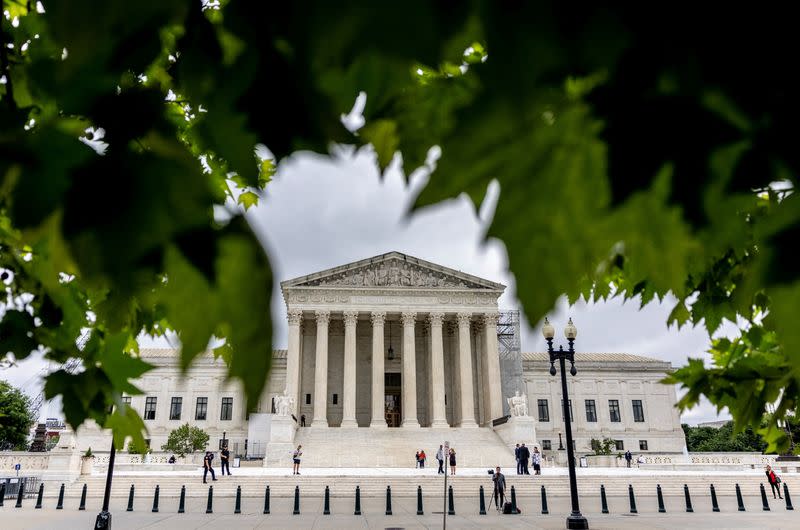Purdue Pharma seeks litigation ceasefire after SCOTUS ruling

By Dietrich Knauth
NEW YORK (Reuters) - Purdue Pharma on Tuesday asked a U.S. bankruptcy judge for a 60-day freeze on lawsuits against its owners, members of the wealthy Sackler family, in its first court appearance since a landmark Supreme Court ruling upended its bankruptcy settlement.
Purdue's attorney Marshall Huebner said at a court hearing in White Plains, New York, that a litigation ceasefire will enable "a high speed, high stakes mediation" as Purdue seeks to renegotiate a comprehensive settlement of lawsuits against the Sacklers and the company alleging that its painkiller OxyContin spurred an opioid addiction crisis in the U.S.
The U.S. Supreme Court ruled on June 27 that Purdue Pharma's bankruptcy settlement can not shield the Sacklers, who did not file for bankruptcy themselves, over their role in the nation's deadly opioid epidemic.
The ruling sent Purdue back to the drawing board after nearly five years in bankruptcy and imperils billions of dollars in funding that the company and the Sacklers had promised to pay toward addressing the harms of the U.S. opioid epidemic.
Purdue's bankruptcy has stopped opioid lawsuits from proceeding against the Stamford, Connecticut-based drugmaker since 2019, and Purdue has extended that legal protection to the Sacklers as well.
Huebner told U.S. Bankruptcy Judge Sean Lane that protecting the Sacklers for a "modest" 60-day negotiating period would give Purdue the best chance to negotiate a new bankruptcy settlement and "preserve as much as possible" of its previous deal.
Purdue intends to move swiftly in an effort to reach a deal that will put money to work stopping opioid overdoses and treating addiction, Huebner said.
"Every single day of delay continues to come at a tragic, tragic cost," Huebner said.
Purdue also asked Lane to appoint two mediators to aid settlement talks.
The proposed mediators are retired bankruptcy judge Shelley Chapman, who brokered a previous deal under which the Sacklers agreed to pay up to $6 billion to settle the opioid lawsuits, and mediator Eric Green.
If mediation fails, Purdue has said a court-appointed committee representing its creditors should be allowed to sue the Sacklers over claims that they drained over $11 billion from the company and that their conduct made Purdue liable for other lawsuits.
The Sacklers have said the creditors' proposed litigation is counterproductive and based on "factual errors."
Lawsuits against Purdue and Sackler family members by state and local governments, as well as individual plaintiffs, have accused them of fueling the opioid epidemic through deceptive marketing of its pain medication. The company pleaded guilty to misbranding and fraud charges related to its marketing of OxyContin in 2007 and 2020.
Purdue and members of the Sackler family have expressed optimism that a new settlement can be reached after the Supreme Court ruling. The previous deal was supported by attorneys general from all 50 states, as well as local governments and a large majority of the individual opioid victims who voted on it.
Members of the Sackler family have denied wrongdoing but expressed regret that OxyContin "unexpectedly became part of an opioid crisis."
(Reporting by Dietrich Knauth, Editing by Alexia Garamfalvi and Bill Berkrot)
